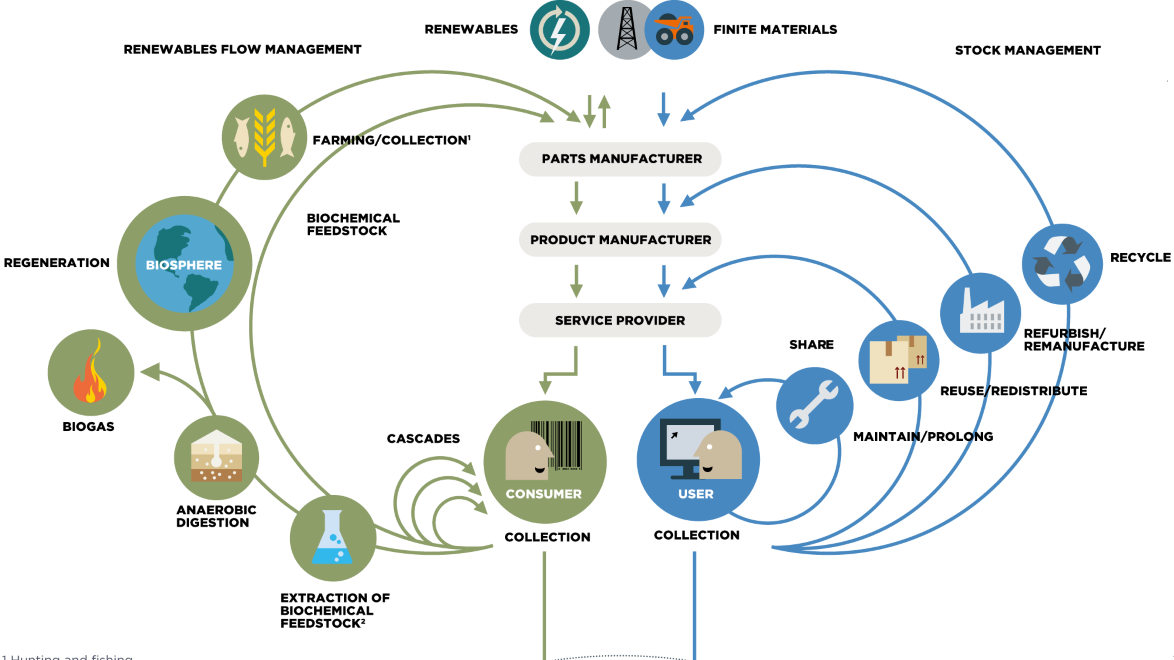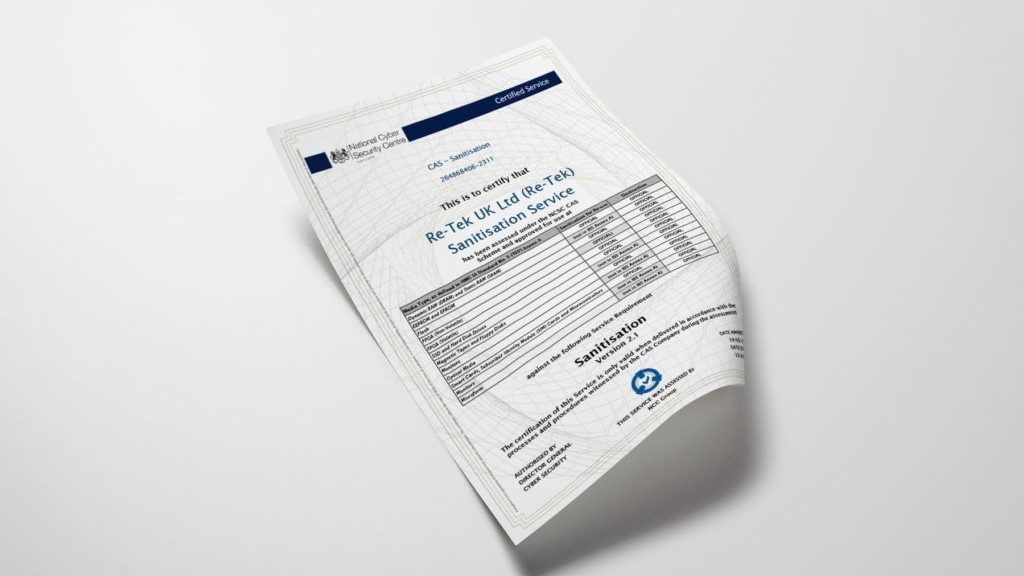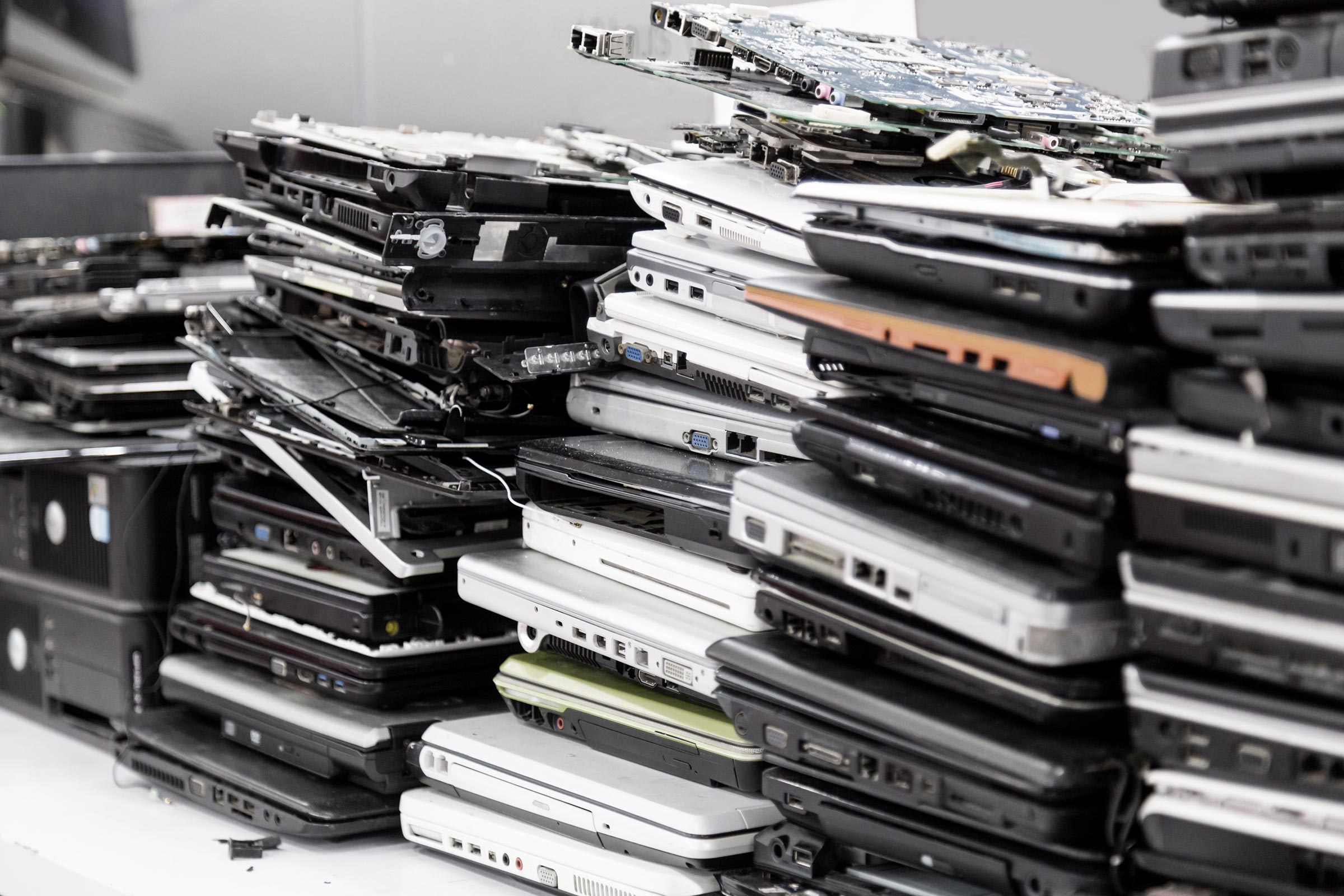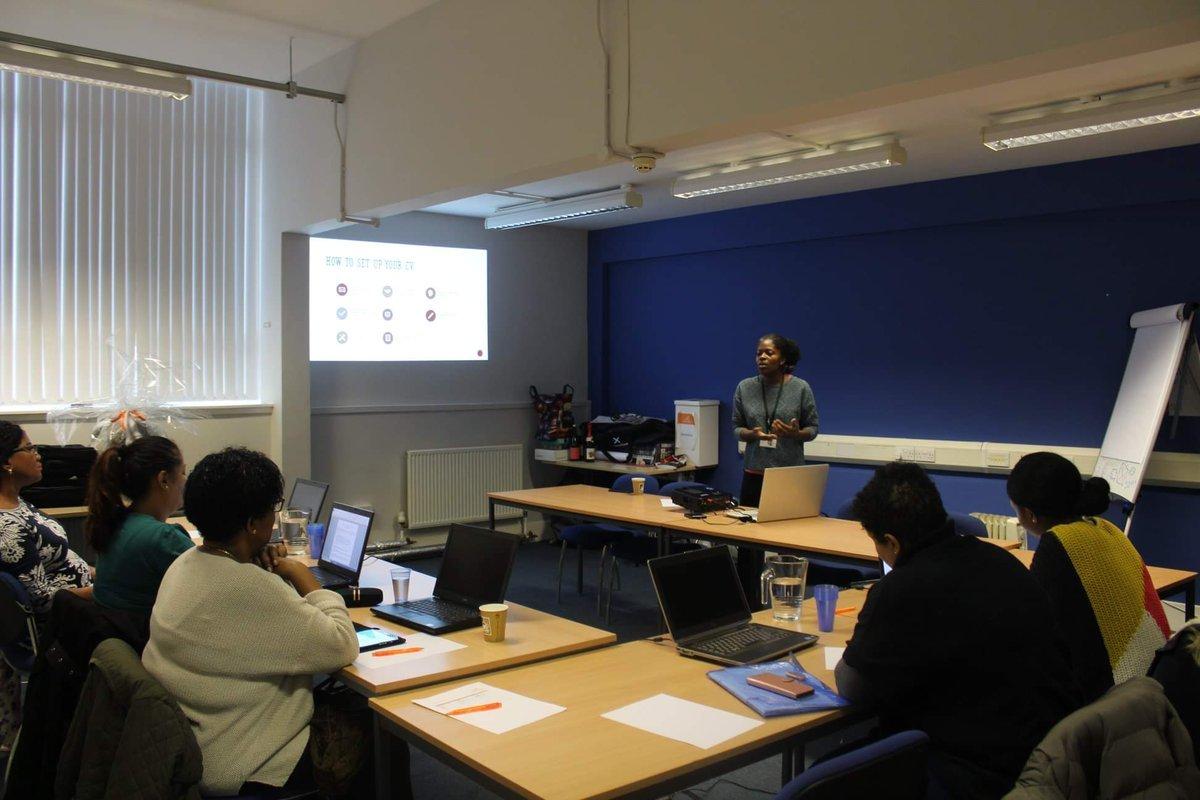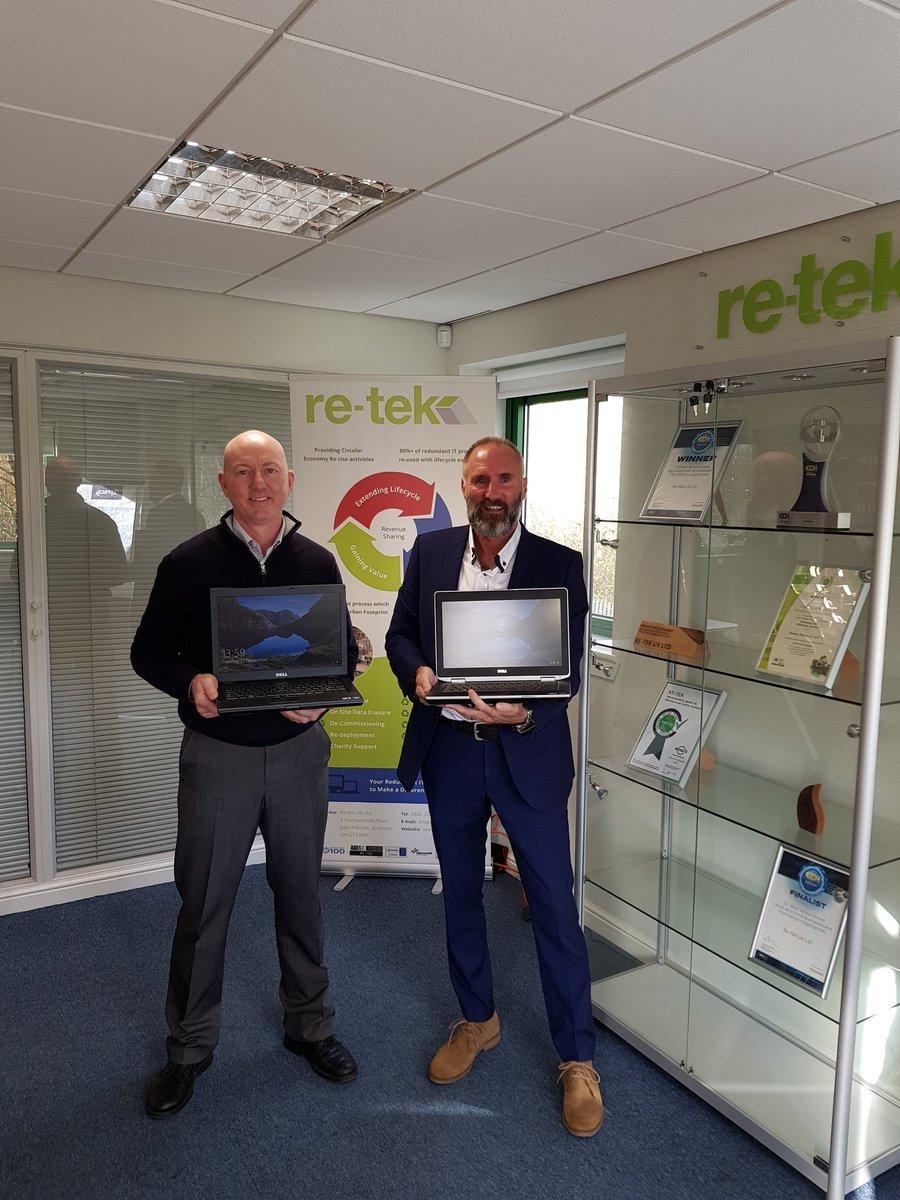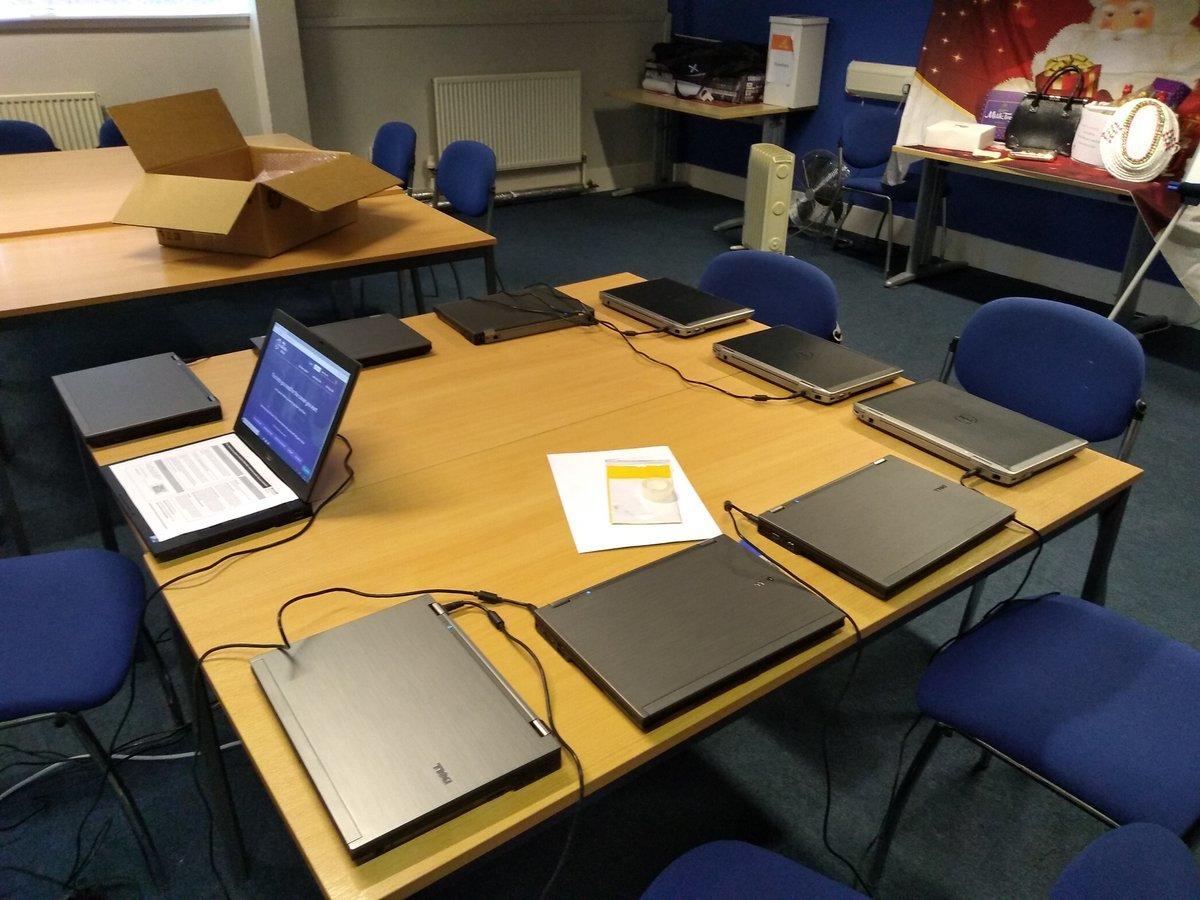3 Key Arguments for Digital Product Passports
3 Key Arguments for Digital Product Passports - Are They the Future Industry Standard for the Circular Economy?
Digital Solutions are critical to the success of the circular economy. These solutions should be easily accessible for everyone, from original equipment manufacturers to final consumers. Could Digital Product Passports be the right solution for a more sustainable economy? Here are the key arguments for a Digital Product Passport.
What is a Digital Product Passport?
A Digital Product Passport (DPP) is a method of digitally recording information about a product. The main purpose of this is to provide an easy to access, centralized bank of information. The DPP’s information will depend on the product. In the IT sector, a DPP would give key information about the materials contained in the product, any repairs that have taken place, and information on how to recycle the product. In other sectors, information will differ. For example, a DPP for packaging will not have information about repairs, but will instead show the percentage of recycled material it contains.
Much of this information is already available. However, this would be a centralized location for all of the information required throughout the value chain. The idea of which is to move closer to a circular economy. Therefore, improved information flows would allow firms to improve their sustainable practices.
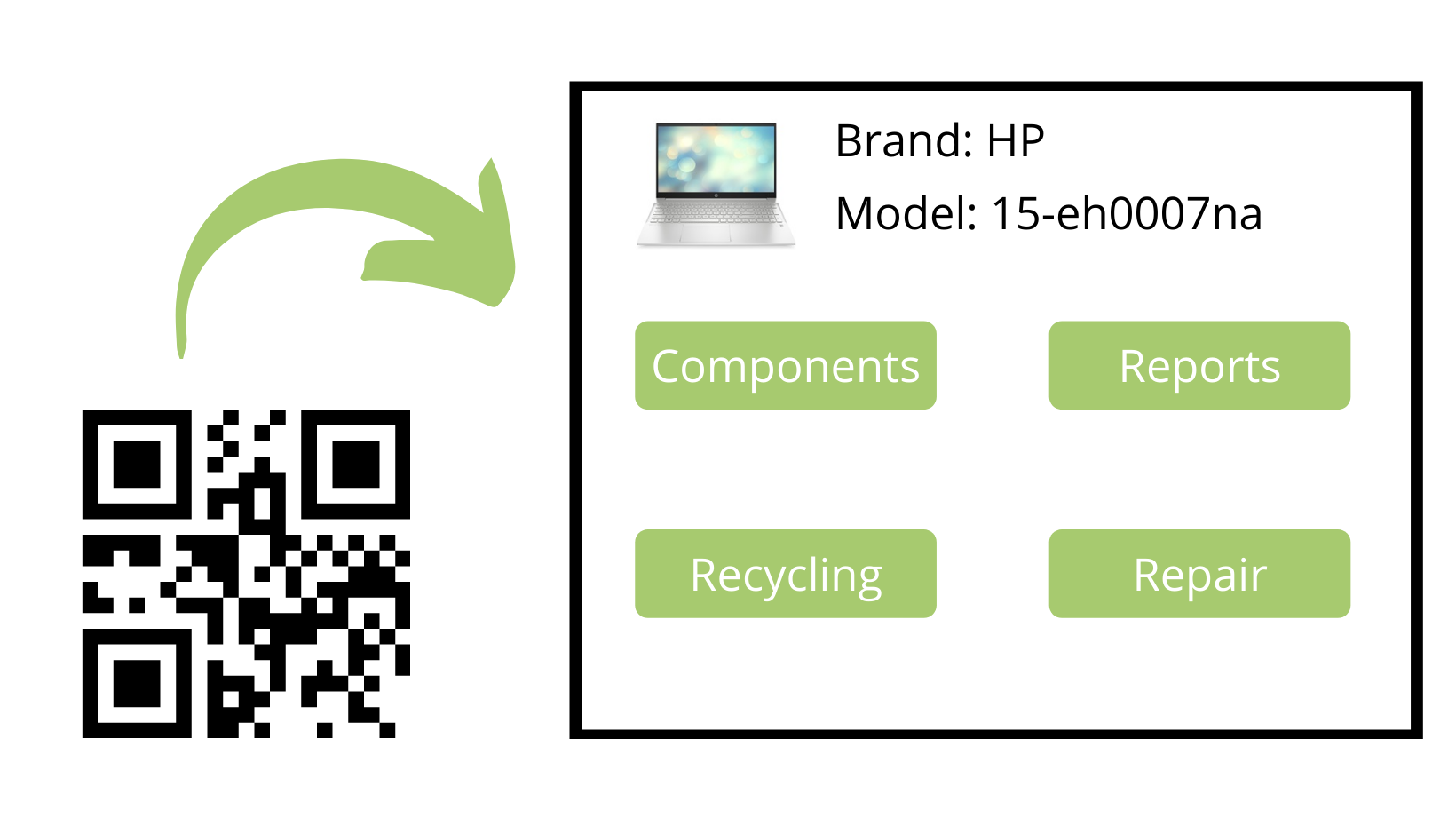
Why should we start using Digital Product Passports?
There are several key arguments for the integration of Digital Product Passports (DPPs) into our systems. These arguments detail benefits for different stakeholders throughout the value chain. From manufacturers to the final consumer, DPPs offer solutions which can help everyone to lower their carbon footprint.
Argument 1: Increased Transparency for both Consumers and Businesses
Currently, there is a lack of transparency surrounding the materials used in our products. This is because information regarding a product’s material is not always easily accessible. With the introduction of the ‘Right to Repair’ Directive, information about repairing your electrical goods has become more readily available. However, there is currently no standardized method for recording these repairs. Recyclers further down the value chain may not know about these changes currently. This becomes an issue where these components have different grades of materials. This will make waste streams more efficient as recyclers can easily separate waste into the correct channels.
Argument 2: Improved Sustainable Practices throughout a Product's Lifecycle
Digital Product Passports would play a key role in a more circular economy. This is mainly due to the increased availability of information for every member of the supply chain. But how does this help improve the sustainability of a product? There are several reasons for this:
Material Grades
Recyclers will be able to segregate waste more effectively thanks to an increase in information. This means that raw materials can be recycled based on their actual grades. Currently, there is a significant drop in quality when materials are recycled. This is because higher-grade materials are being recycled as a lower grade. This leads to an overall lower quality of recycled material for future use. Therefore, better reporting is key to improving the quality of recycled material used for future manufacturing. This would reduce the need for virgin raw materials. The material footprint of new products could be lowered by using recycled materials over virgin materials.
Understanding your Carbon Footprint
Digital Product Passports could allow you to better understand your product’s material footprint. For example, you would know how much of the product is made of recycled material. This can help you calculate the environmental impact of your business purchases. Additionally, a DPP could provide comparisons between new products and remanufactured products. This would allow you to calculate your carbon savings. Sustainability is critical to our future. Therefore, being able to quantify our environmental impact is a key consideration for most businesses.
Right to Repair
A Digital Product Passport would make repairing products easier. Repairers would be able to access key information about the components in a product. This will help them to find spare parts for repair. This is important in the IT sector, where components can differ very slightly. An integrated approach to information sharing would ensure that components are replaced properly. Additionally, any alternative components used in repair would be recorded. This would help recyclers sort the waste from the new components. Where repairs have been made during the lifecycle of a product, new components may have alternative materials to the original components. Overall, the implementation of a Digital Product Passport would be a step towards greater circularity in the economy.
Argument 3: Centralized Information Flow
There are currently several information flows required by the government for different products. These include WEEE reporting and energy efficiency ratings. A Digital Product Passport would provide a one-stop shop for all of this information. This would benefit members of every stage of the supply chain. For manufacturers, it would provide a single solution to their initial reporting. Therefore, manufacturers would be able to enter all of the information into one central system. For end users, it provides an easily accessible platform for any issues during the lifecycle of a product. For example, it would provide information for repairs should a problem arise. It would also provide a centralized solution to their environmental reporting. For recyclers, it makes environmental reporting simpler. This would standardize procedures which would benefit all members of the value chain.
Avoid Losing Data
According to David Fitzsimons, director of the European Remanufacturing Council, data loss is one of the biggest threats to the circular economy. After-sales processes can be improved by improving the flow of information,. This is because processes further down the value chain can become more efficient. All of this could be done through a Digital Product Passport.
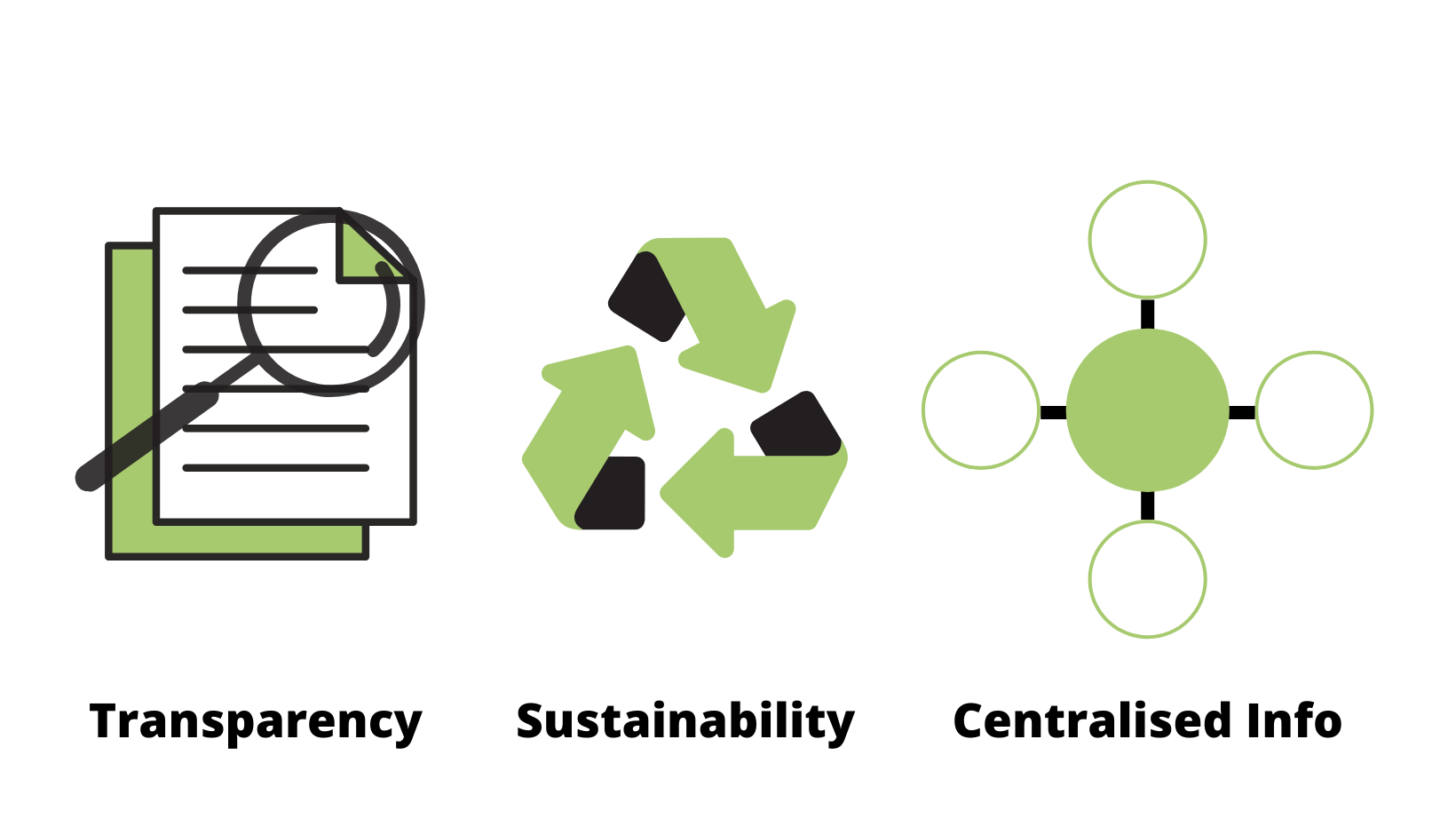
How Would each Member of the Supply Chain Benefit from a Digital Product Passport?
The Digital Product Passport’s success relies on the benefits that it gives to every stakeholder. Therefore, the benefits must be clear for each stakeholder. Otherwise, it will not be possible to integrate a DPP into the lifecycle of our products. But how would a digital passport benefit each of these stakeholders?
Manufacturers
For the manufacturer, the Digital Product Passport allows them to provide their information in a centralized file. This would aid them in limiting the number of documents that they need to complete in the future. Additionally, a DPP could help manufacturers to better understand the material footprint of their products. In doing so, manufacturers could better understand their product’s lifecycle. This would allow them to make changes that could improve the sustainability of their products. For those who produce environmentally sound products already, this would provide a credible channel for them to make claims about their sustainability. A DPP would give them a competitive advantage, as they would have proof of the sustainability of their products. This method of reporting would differentiate them from other companies who attempt to green-wash their brands.
Repairers
Having an easier means of accessing information about products will primarily benefit repairers. The Digital Product Passport will hold valuable information about the materials and components of a product. For repairers, this will decrease the amount of time taken to seek out replacement parts. This will help repairers to increase the value of their service as information about repairs becomes more readily available. This lines up with the ‘Right to Repair’ Directive, which promotes repair over recycling where possible. As end users become more aware of the carbon footprint of their devices, there will likely be an increased demand for repair in the future.
Recyclers
The benefits for end-of-life handling are clear. With information more readily accessible, recyclers will be better equipped to recover valuable materials from end-of-life products. These services are essential to the circular economy. Recyclers will also benefit from a centralized file for any environmental reporting. Currently, recyclers could have several different reports to complete when carrying out their processes, including WEEE reporting or data destruction certificates.
End Users
The end user benefits from an increase in transparency. This allows them to make more sustainable purchase decisions. This is because they are able to see the material footprint of a product prior to purchasing it. Additionally, an increase in information gives them the opportunity to think circular. This means they are more aware of the repair services available to them, as well as the importance of properly treating end-of-life products.
How Should a Digital Product Passport Work?
For a Digital Product Passport to work and deliver the value that is required, it would need to be easy to access. This is so that users can find information quickly and efficiently. This information should be provided through QR codes where both consumers and businesses can quickly access the information required for repairs or for recycling processes.
The information needs to be at two different levels: One level for consumers which is easy to digest and with the key information about replacement parts and warranty information. On the other hand, another level of information for businesses the materials used in the product is required.
Is the Circular Economy the Solution to Climate Change
Our Current Situation
The climate crisis is an ever-looming threat to our society and tackling climate change has become a global priority. The UN has now set key Sustainable Development Goals while the UK government have set out a 25-year climate change plan. Developing more sustainable life-cycle management for our products has therefore become a key concern as material management is expected to account for two thirds of all greenhouse gas emissions by 2060 if we continue with current manufacturing and waste management practices[1]. Sustainable Development Goal 12 focuses on sustainable production and re-manufacturing.
According to recent studies, manufacturing processes currently account for over 45% of all greenhouse gas emissions worldwide[2]. This colossal figure encompasses every stage of the manufacturing process, from the energy used in natural resource mining to the carbon emissions of industrial factories. However, the circular economy offers a key solution for tackling these emissions. By re-using materials which are already in the economy, through refurbishment and re-manufacturing practices, the carbon footprint from manufacturing can be cut in half. This is because these processes preserve what is known as ‘embedded energy’. This is the energy that was required for the initial manufacturing process. By reusing these components, we are able to avoid the emissions required to manufacture from scratch. Therefore, the material footprint of refurbished products is much lower than of new products.
The environmental savings from reducing the material footprint by reusing and recycling products are expected to total 1.1 billion tonnes of CO2 per year[3]. Thus, prioritising the circular economy is the quickest and easiest way to cut greenhouse gas emissions from manufacturing. An investment in the circular economy does not only benefit the environment, but also has significant economic outcomes as well. The economic benefits of a more circular economy are evident, with current estimations finding that an increase in the use of refurbishment and recycling processes would result in £57.3 billion being added to the UK’s GDP while creating 330,000 jobs within the sector[4].
Why does WEEE Recycling Matter?
The UK has a growing mountain of electronic and electrical waste which it needs to tackle to effectively lower its carbon footprint. Currently, waste electronics and electrical equipment (WEEE) is one of the fastest growing waste streams in Europe and is therefore a key priority in the UK. Electronic waste has grown 38% worldwide from 2010 to 2019 with little being done to curb this growth[5]. This means that the material footprint of the electrical manufacturing industry is quickly snowballing into a much bigger problem. It is therefore the responsibility of both businesses and consumers alike to shrink the material footprint of their electrical purchases. It is imperative that we all participate in the circular economy, through structured, efficient waste management streams.
Ultimately, the circular economy is an effective short-term solution to the climate crisis, but it is not enough to fully eradicate the current climate crisis. However, by taking greater care throughout the life-cycle of our electronics and electrical products, from initial manufacturing to end-of-life disposal, the carbon footprint of these products can be dramatically lowered.
Re-Tek are able to refurbish over 90% of the equipment that we receive and almost everything that we cannot refurbish is recycled in line with the WEEE recycling directive, with less than 1% of materials going to landfill. Powered by a 50kW solar panel array as well as a 60kW biomass boiler, Re-Tek are able to drastically lower the carbon footprint of waste electronics and electrical equipment (WEEE) while providing financial incentives to our partners.
[1] OECD – The Circular Economy in Towns and Cities
[2] Ellen MacArthur Foundation -How the Circular Economy Tackles Climate Change
[4] WRAP – Net Zero: Why Resource Efficiency Holds the Answers
Re-Tek Achieve CAS(S) Certification

As you may have seen already on the Re-Tek UK LinkedIn page, Re-Tek UK are now a CAS(S) approved service provider. Even after 25 years, we still strive to improve our business in order to provide you with the best and most secure service possible. This certification is a testament to the tremendous effort of our staff who maintain the highest standards of security every day. We understand that some of you may not know what this certification is or what it means for you as a customer, therefore we have compiled some information about our latest accreditation to answer some of your questions.
What is the CAS(S) certification?
The CAS(S) certification ensures that any accredited service provider conforms to the high standards set by the National Centre for Cyber Security, a government department dedicated to setting best practices for cyber protection. This certification means that Re-Tek are now certified to destroy data safely and securely up to and including the Government’s ‘official’ level.
How were Re-Tek assessed for this certification?
A representative for the National Cyber Security Centre assessed Re-Tek’s services and procedures in order to ensure that we met their standards. Namely, Re-Tek were assessed to ensure that all data-bearing assets were kept secure both during transportation and while in storage. Additionally, Re-Tek’s equipment was evaluated to ensure that it is properly maintained and that we follow the correct data sanitisation processes at all times. Finally, Re-Tek were assessed to ensure that all of our processes are audited internally to ensure that we continue to improve our service offering in the future.
What does this mean for you as a customer?
First and foremost, it means that you can feel assured knowing that all of the data-bearing assets you send to us will be treated by a team of trained staff. Secondly, you can be certain that all of your private data will be securely destroyed and that you will get asset reports which show that all processes have been carried out correctly. Finally, you know that you are working with one of the leaders of the IT asset disposal market as Re-Tek are the first company based in Scotland to achieve this certification.
What does this mean for Re-Tek?
Receiving this certification was one of our main goals for this financial year. Achieving this milestone reminds us that we must always strive to improve our service offering in order to achieve new heights. For now, our focus is firmly on ensuring that we maintain the standards of service that you as customers expect and that you receive the support and service that you deserve.
To find out more about our newly accredited services, please visit our Services Page.
Reducing E-waste with refurbished IT
Did you know?
That as the fastest growing waste stream in the world, there is so much E-waste that all of it together would weigh more than 125,000 Boeing 747 jumbo jets?
It is estimated that by 2020, there will be approximately 30 billion internet connected devices worldwide. However, just 20% of this will be appropriately collected and recycled…this will result in the loss of valuable materials and cause a serious environmental impact.
Re-Tek is constantly looking for solutions to combat this growing worldwide issue. One of our solutions being Lease-Tek, who enable companies to lease refurbished IT equipment, therefore extending the lifecycle of this equipment.
Read more about the E-waste problem, and what your organisation can do to help here…https://digit.fyi/it-leasing-uk/
CeeD Scotland Awards
Another award for Re-Tek
Re-Tek were named winners of the “Sustainability” award at this years CeeD Scotland Awards on Thursday 28th of February at the Hilton Hotel Glasgow.
We are delighted to have been named winners of the Sustainability award at this year’s CeeD Scotland awards in Glasgow. Our Projects Director attended the event and commented “Congratulations to CeeD on delivering a fantastic evening in the Hilton in their inaugural Awards ceremony. Thanks to all the sponsors and particularly the Scottish Institute of Remanufacture for sponsoring the Sustainability Award. It was an honour to collect the award from Paul on behalf of Re-Tek and our partners, and we wish all the other winners and nominees great success in the future.”
A video of the ceremony can be found here. Well done to all of the other nominees and winners!
Lease-Tek, Re-Tek's exciting new project
Smart People Lease
Re-Tek has been provided funding support through Zero Waste Scotland’s Resource Efficient Circular Economy Accelerator Programme, which helps small and medium sized businesses in Scotland be more resource efficient and create a more circular economy.
Lease-Tek is our exciting new project, providing a competitively priced computer hardware leasing service, negating the upfront cost required to update your IT equipment.
This is a great opportunity for organisations who are looking to enhance their low carbon initiatives. By leasing perfectly functional, refurbished equipment, you will help to extend the life-cycle of IT equipment, reduce the environmental effects of recycling and landfill, and promote the Scottish Governments drive towards a circular economy.
With monthly fees starting from £13, Lease-Tek provides an affordable choice for all businesses and third sector organisations. The service benefits from a dedicated helpline to support hardware issues and provides a replacement unit if the unit cannot be replaced.
More information can be found on the Lease-Tek website.
Adopt and Intern's Diversity Works seminar
Donated laptops put to good use
It’s great to see Re-Teks donated laptops being put to good use. Here they are pictured below, being used to train the women at Radiant and Brighter’s Adopt an Intern’s Diversity Works seminar.
Diversity Works is a Scottish Government-backed inclusive business initiative from socially-driven employment specialists, Adopt an Intern.
The aim of the seminar is to facilitate an open discussion between employers and women of BME communities regarding current employment policies and processes. This enables them to identify actions, allowing a more diverse workforce to be achieved and supported.
More donations to Working Rite
10 more laptops off to new homes
Pictured below is Re-Tek’s William McPherson and Working Rite’s Dennis Murphy with 10 more donated laptops before they went off to their new homes.
It was our pleasure to support Street Soccer Scotland’s young people and One Parent Families Scotland’s single mothers to help provide access to those desperate to get on the employment ladder.
Re-Tek would like to thank DIGIT once again for introducing us to these great causes.
Radiant and Brighter
Working Rite's Radiant and Brighter Community Interest project
Thanks to an introduction from DIGIT we were delighted to donate 10 laptops to Working Rite to help with their Radiant and Brighter Community Interest project.
Radiant and Brighter is a fantastic organisation promoting diversity through education, inspiration and changing perceptions to deliver greater societal integration and economic participation.
Here are some of them charging up and ready to go in their new home in Glasgow! All at Re-Tek wish them well.
Go Awards
Re-Tek Were Named Winners
Re-Tek were named winners of the “GO Best Service Award: Micro and Small Businesses and Third Sector Organisations” at this years Scottish GoAwards on Tuesday the 23rd of October at the Glasgow Marriott Hotel.
Our Managing Director Gordon Lowrie collected the award alongside our Projects Director William McPherson. We would like to thank all of our customers for their continued support alongside congratulating all of the other finalists.
Re-Tek were delighted to have their community efforts recognised by receiving such a prestigious award and remain committed to delivering similar future projects alongside our core recycling, secure data destruction and ITAD services to our Public Sector and Corporate customers.

